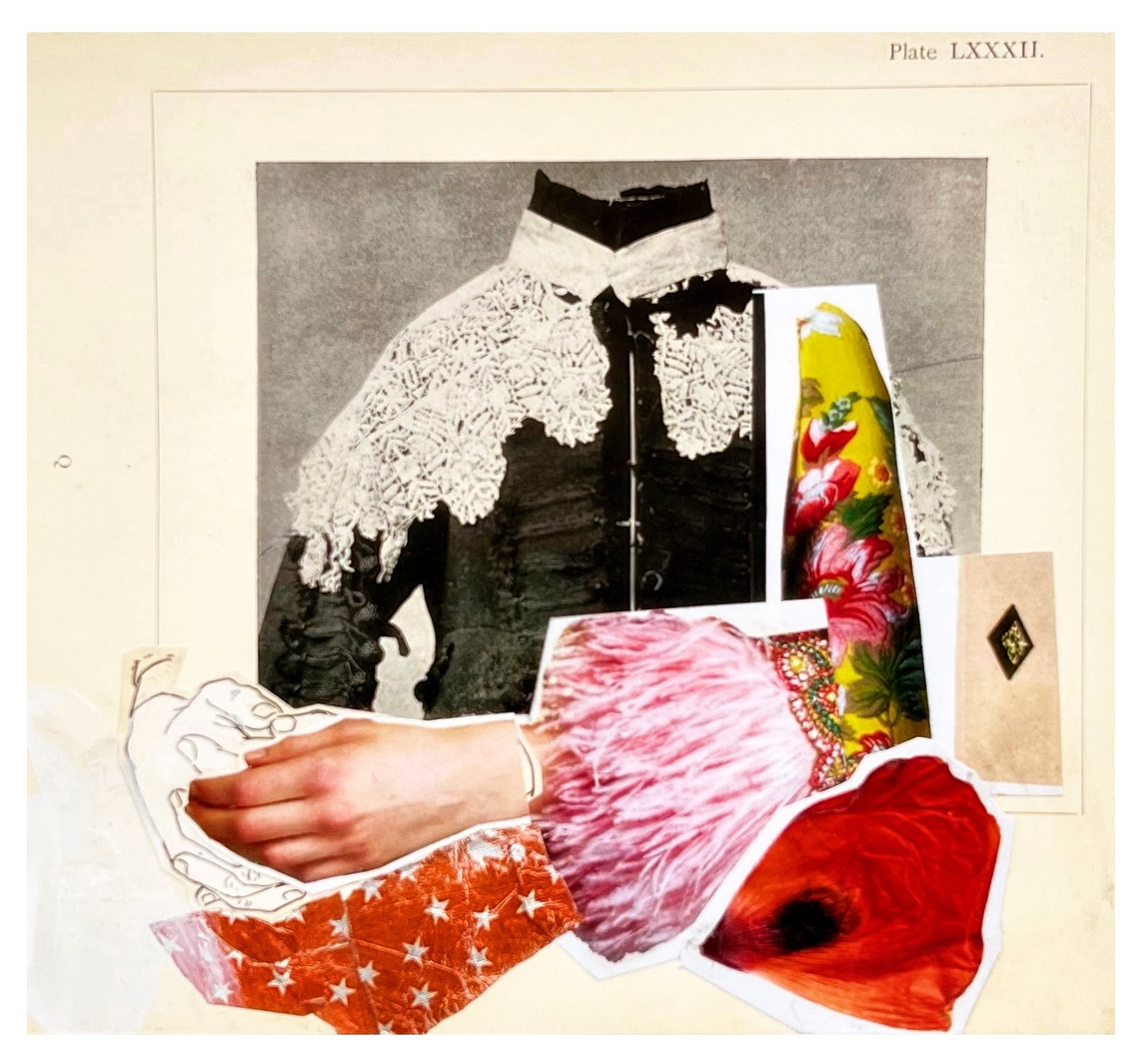
Art: "Set Piece" by Jennifer Griffiths Orudjev
Fiction: "Karst Memories" by Peter Wiercioch
My mother measures erosion in breakfast plates. “The Dunajec,” she says, pouring coffee into my cup until it overflows, “carved this gorge grain by grain.” Her hands shake like geological time-lapse, spilling dark liquid across white porcelain. I say nothing. She doesn’t notice, or pretends not to—the same way she pretends not to notice when she forgets my name, calling me by coordinates instead: son-at-the-table, boy-who-looks-like-maps.
Before the forgetting began, she was the foremost expert on the Pieniny Mountains’ karst formations. She could read limestone like Braille, her fingers finding stories in every solution cavity, each calcite vein. “Water is patient,” she would tell her students, “it remembers every path it has ever taken.” Now she traces the coffee stains spreading across the tablecloth, as if tracing tributaries on a map.
“Did I ever tell you about the ghost river under Trzy Korony?” she asks, her gaze distant. When she repeats it twice more in ten minutes, each version shifts slightly, like core samples taken from different depths of memory. In one, she discovered the underground channel during her doctoral research. In another, her mother showed it to her in a dream. In the third, she’s absent entirely—just the river, flowing through darkness, carrying fragments of forgotten things.
“You did,” I say, but she doesn’t respond, already lost in some inner crevasse. The helplessness hits me like a landslide. I want to shout at her, shake her, demand she fight harder, but I know it’s futile. I settle for documenting her dissolution in daily journal entries:
Day 487: References historical events out of order. Speaks of her old thesis as if incomplete. Maintains geological accuracy but fails to recall who I am.
Day 488: Addresses the coat rack with a detailed discourse on karst formations. Complex terminology intact; personal anchors slipping away.
Day 489: Wants to visit Sokolica again. Doesn’t accept she’s in a care facility far from that landscape. Correctly identifies rock types, loses track of family names.
After writing, I remember my own doctoral research mapping weathering patterns in the sedimentary rock of the Grand Mesa, a quiet attempt to follow her intellectual legacy. Her mind was my first classroom, and now it is collapsing. I bring up my questions, not in anger but in hope: “Why don’t you remember my name? Why is the river more real to you than I am?”
She stiffens. “Because the river is permanent,” she says, her voice sharp with the authority I once worshiped. “You can’t expect me to trust maps that keep changing.”
I sit back in silence.
Later, I find her in the garden conducting an invisible seminar. Her hands sketch formations in the air: “Notice how the Dunajec River has exposed these layers—Jurassic limestone overlying Triassic dolomites.” Her audience is a row of tulips, their heads nodding in the breeze. Her voice carries the same authority it held in lecture halls, though now she wears a hospital gown instead of field gear.
“Mom,” I say softly, breaking into her monologue. Her expression tightens, defensive, and I brace for an argument, but she only frowns at her hands as if seeing them for the first time. “What am I doing here?” she asks, voice trembling. “This isn’t—”
“You’re teaching,” I say quickly. “You’re teaching me.”
The words ground her. She nods, professional mask slipping back into place. “Ah,” she says. “Well, then. Did I explain how water remembers every path it has taken?”
“You did,” I reply. This time, I lean into the lie because it softens the edges of her fear.
She gestures to the garden path, where it curves behind the hydrangeas. “Look there—you can see where the river is cutting through the gorge. Isn’t it magnificent? Every loss creates new landscapes.”
I don’t correct her. Instead, I hold her hand as we walk back inside, letting her believe we’re traversing mountain trails instead of hospital corridors. The tension between us softens. Tomorrow, she may remember me as a student, a stranger, or a figment of some lost topography. But for now, we are here: mother and son, standing at the edge of forgetting, watching the river carve its patient way through everything we thought was permanent.
Published January 21th 2025
Peter Wiercioch is a multidisciplinary artist working in digital illustration, design, and event photography in Ottawa, Ontario. As a neurodivergent artist with a love of literary fiction & contemporary poetry, his writing is heavily influenced by his design work—blending the natural with the surreal. You can find him on Instagram @pter.w
Jennifer Griffiths Orudjev is a collage artist and painter living outside Washington DC. Her work explores the nature of memory, transformative and transitory states, and the act and language of making meaning. She has a background in sculpture and printmaking, and a deep love of craft. Her work has been published internationally, and is held in private collections in the Untied States and abroad. She is a member of NOMA Gallery and is associated with the Twin Cities Collage Collective.